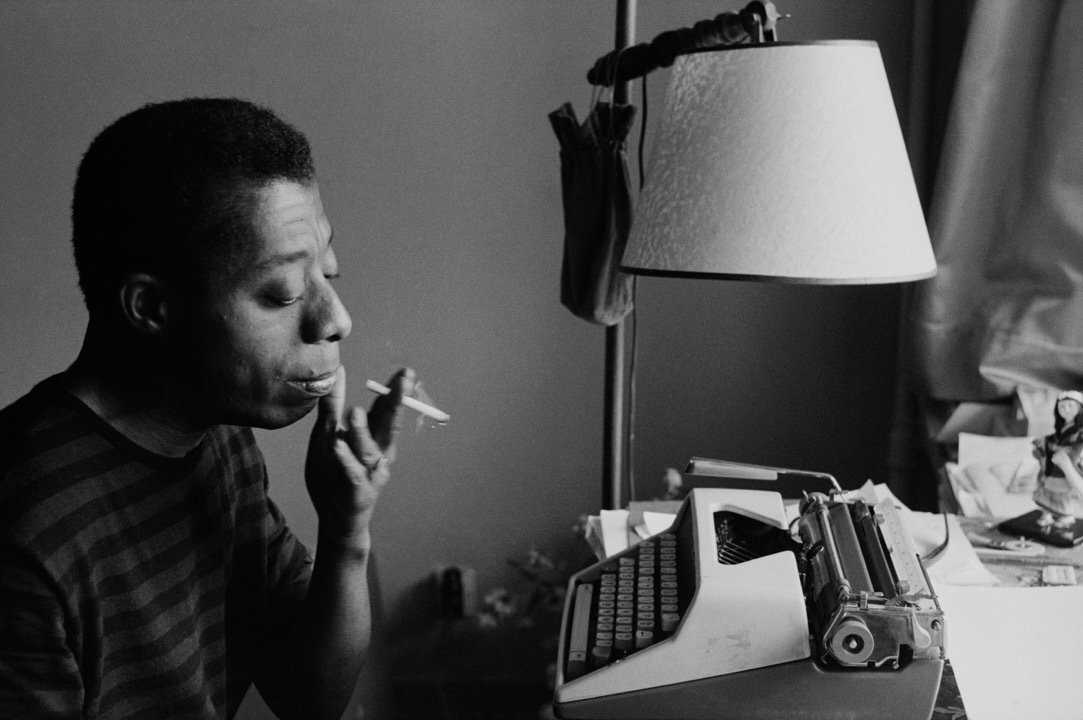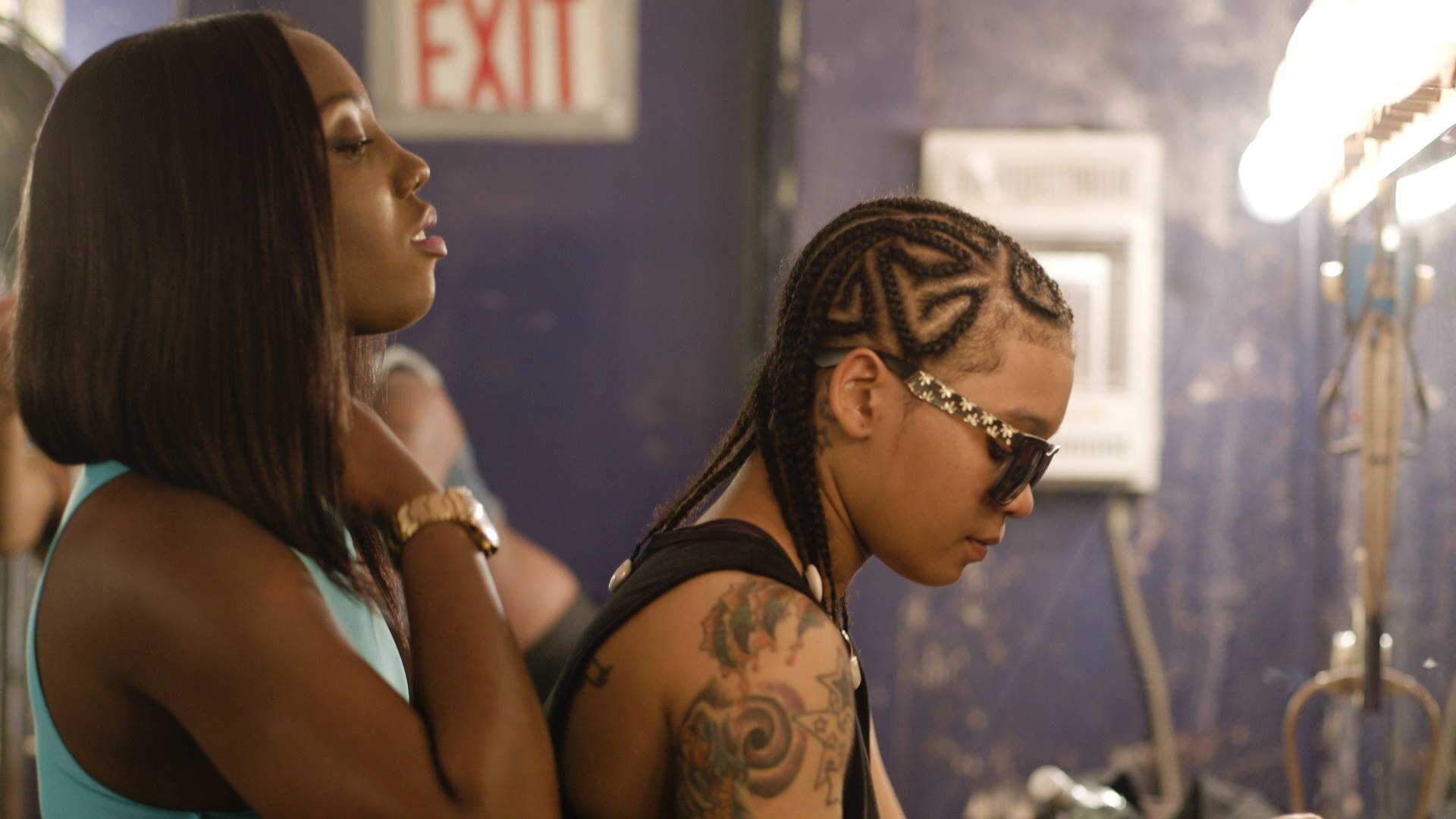Pride Is Protest: 8 Films and Documentaries
Activist Marsha P. Johnson hands out flyers in support of gay students at N.Y.U. Photo by Diana Davies, The New York Public Library/Art Resource.
“There is no Pride without Black Pride, just as there is no gay community without the Black community.”
This Pride month is like no Pride month that has come before it. Teetering on the edge of an almost international lockdown due to coronavirus, hundreds of corporation-sponsored pride parades have been cancelled this summer. We are also experiencing an international and incredibly powerful surge in the Black Lives Matter movement. Remembering that pride parades and the fight for racial justice and equality will always be interlinked is of utmost importance, now more than ever. There is no Pride without Black Pride, just as there is no gay community without the Black community. This June, as protests and marches happen across the world in memory of the Black lives lost to the brutality of racism, we would do well to remember the roots of Pride in the riots and protests sparked at the Stonewall Inn in 1969. There is no freedom if that freedom is limited to a certain group of people. We have no choice but to be intersectional and fight for causes other than our own.
Below is a slice of some of the best films and documentaries that highlight LGBT+ pride as a protest against corrupt systems, heteropatriarchal culture, and uncaring governments. This is our past, present, and future as LGBT+ people, and we cannot forget that now.
Marsha P. Johnson and Sylvia Rivera at Pride, 1973.
Pay It No Mind: The Life and Times of Marsha P. Johnson (2012)
A look into the times of one of Stonewall’s most famous faces: Marsha P. Johnson. This documentary gives us a glimpse of Marsha’s life from the perspective of her friends, fellow performers, and activists. Her role in the Stonewall riots, as well as her work for gay liberation, homeless gay youths, and ACT UP NYC stand out as her most significant contributions to the LGBT+ movement in the United States.
Available: YouTube (free)
March following Stonewall in 1969.
Stonewall Forever (2019)
A short documentary about how we view the past of Pride and what the future might look like. This film is particularly notable for highlighting transgender and non-white voices, and bringing together words from activists, young and old, to talk about what Pride and the legacy of Stonewall means to them.
Available: YouTube (free)
James Baldwin, author of the unfinished manuscript that I Am Not Your Negro was based on.
I Am Not Your Negro (2016)
Based on an unfinished manuscript by James Baldwin, this documentary focuses on the lives of key figures of the American Civil Rights movement from the perspective of one of the most significant Black, gay minds of 20th century America. Importantly, this documentary demonstrates how Black liberation is inextricably linked with gay liberation.
Available: BFI Player
Still from How To Survive A Plague, featuring original footage from a march protesting the (non) action from the US government in reaction to the AIDS epidemic.
How To Survive A Plague (2012)
This documentary focuses on the early years of the AIDS epidemic in the United States, and the beginnings of organisations such as ACT UP. Director David France cuts together hundreds of hours of original footage of interviews, news coverage and videos of protests into a moving piece of work that will stick with you for a very long time.
Available: Unfortunately only available internationally via Amazon.
Still from New Deep South: House of JXN (2017).
New Deep South: Episode 3, House of JXN (2017)
This is a three-part documentary series but this final episode is like a modern-day Paris is Burning. Directed by Ro Haber, the episode focuses on the lives of Black, queer and gender non-conforming people in Jackson, Mississippi, and their experiences as part of a Rainbow Family. It’s an honest portrayal of the lives of LGBT+ people in the deep south and their existence as protest against the conformity that conservative cultures demand.
Available: Vimeo
Still from Pride (2014).
Pride (2014)
A film based on the true story of the 1984-85 miner’s strike in Britain and the group of lesbian and gay activists that fundraised and supported them in the face of the Thatcher government. This is an extremely moving story of solidarity and unity in difficult times. Plus, the bookshop featured in the film is real and still functioning in Bloomsbury.
Available: BFI Player, YouTube
Still from 120 Battements par Minute(2017), set in 1990s Paris.
Still from Paris Is Burning (1990), depicting the ballroom scene in 1980s New York.
Paris is Burning (1990)
Possibly one of the most famous LGBT+ documentaries, and for all the right reasons. Paris Is Burning is an intimate look at the lives of the ballroom scene in New York City in the 1980s. The documentary focuses particularly on Black and Latinx gay, queer, and transgender people and does it with such honesty and warmth that you fall in love with many of its subjects. Most importantly, it weaves us a story of how creative expression is a form of resistance and protest in a world that denies not only your rights, but your very existence.
Available: YouTube (free)
Eliza Campbell is Culture Editor at the Attic on Eighth. When she’s not reading, writing, or in a rehearsal room, she loves to sit in galleries, libraries, and coffee shops listening to period drama soundtracks and watching the world go by.












Culture Editor Eliza Campbell shares eight of the best films and documentaries that highlight LGBT+ pride as a protest against corrupt systems, heteropatriarchal culture, and uncaring governments.